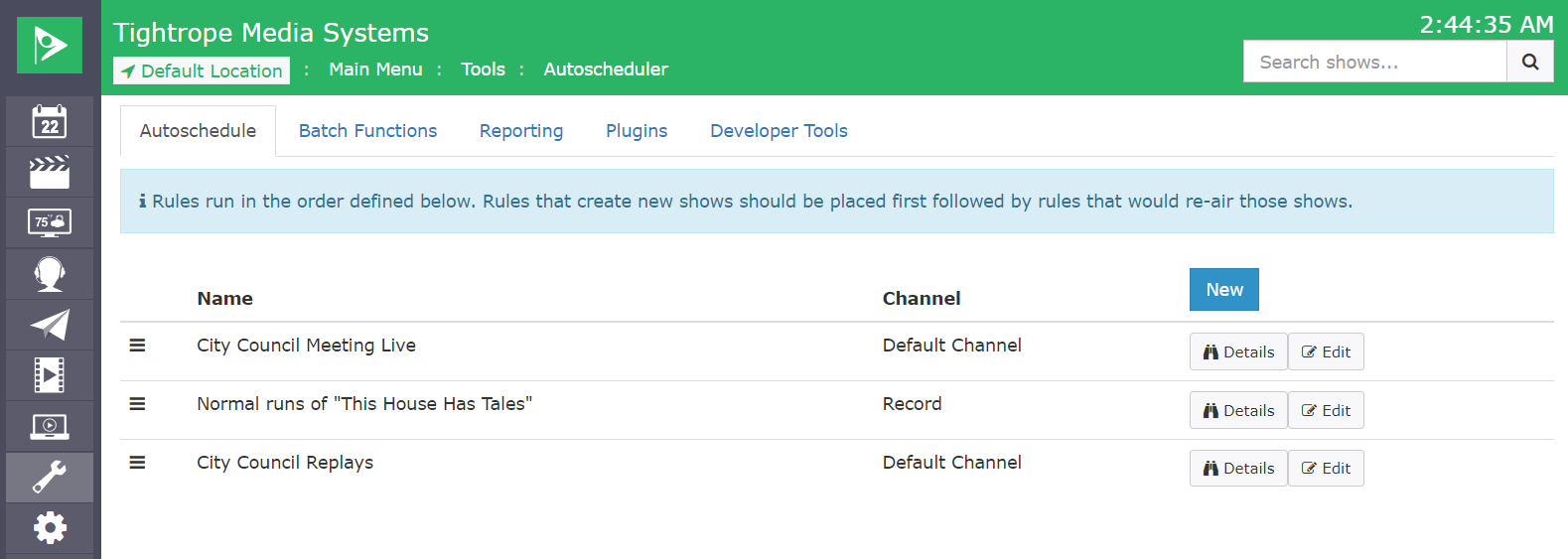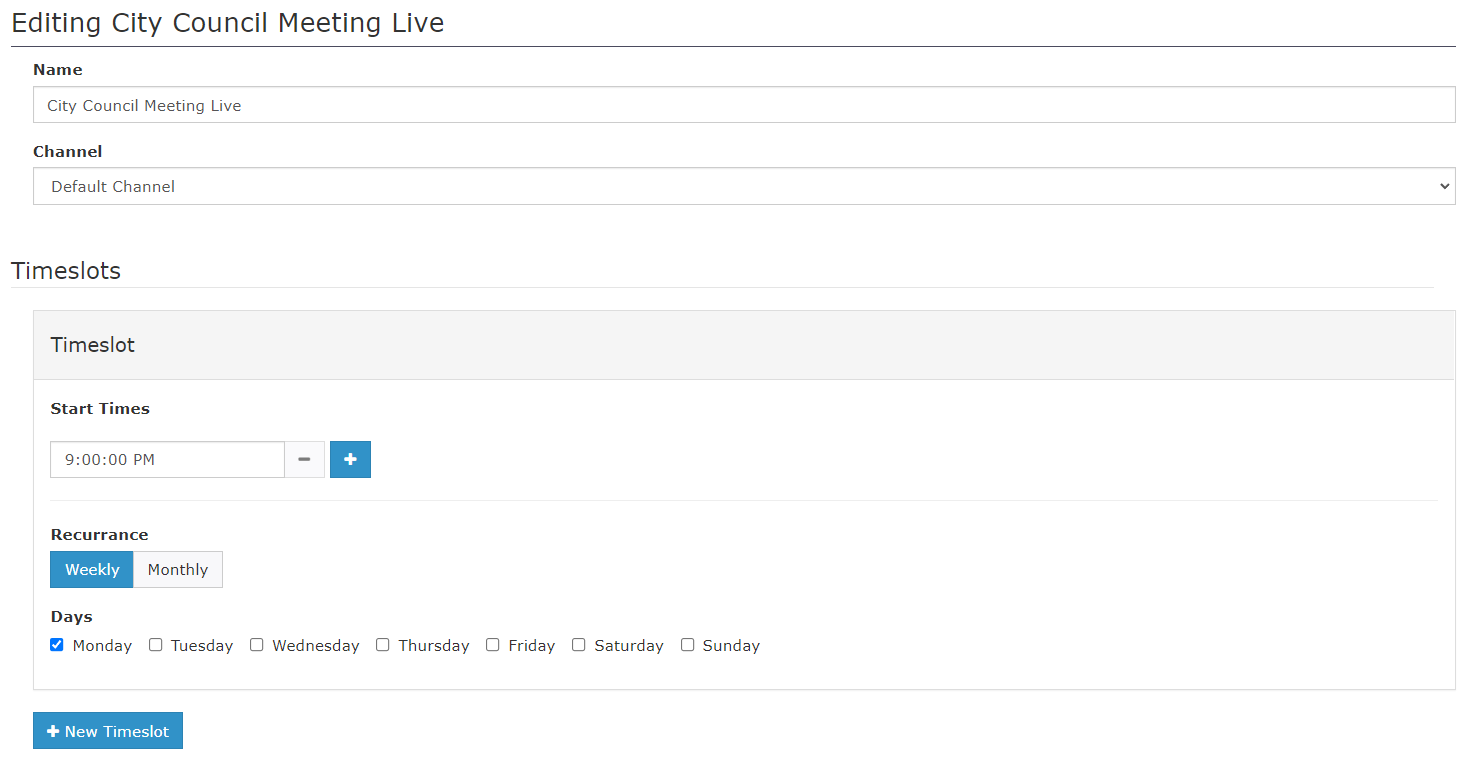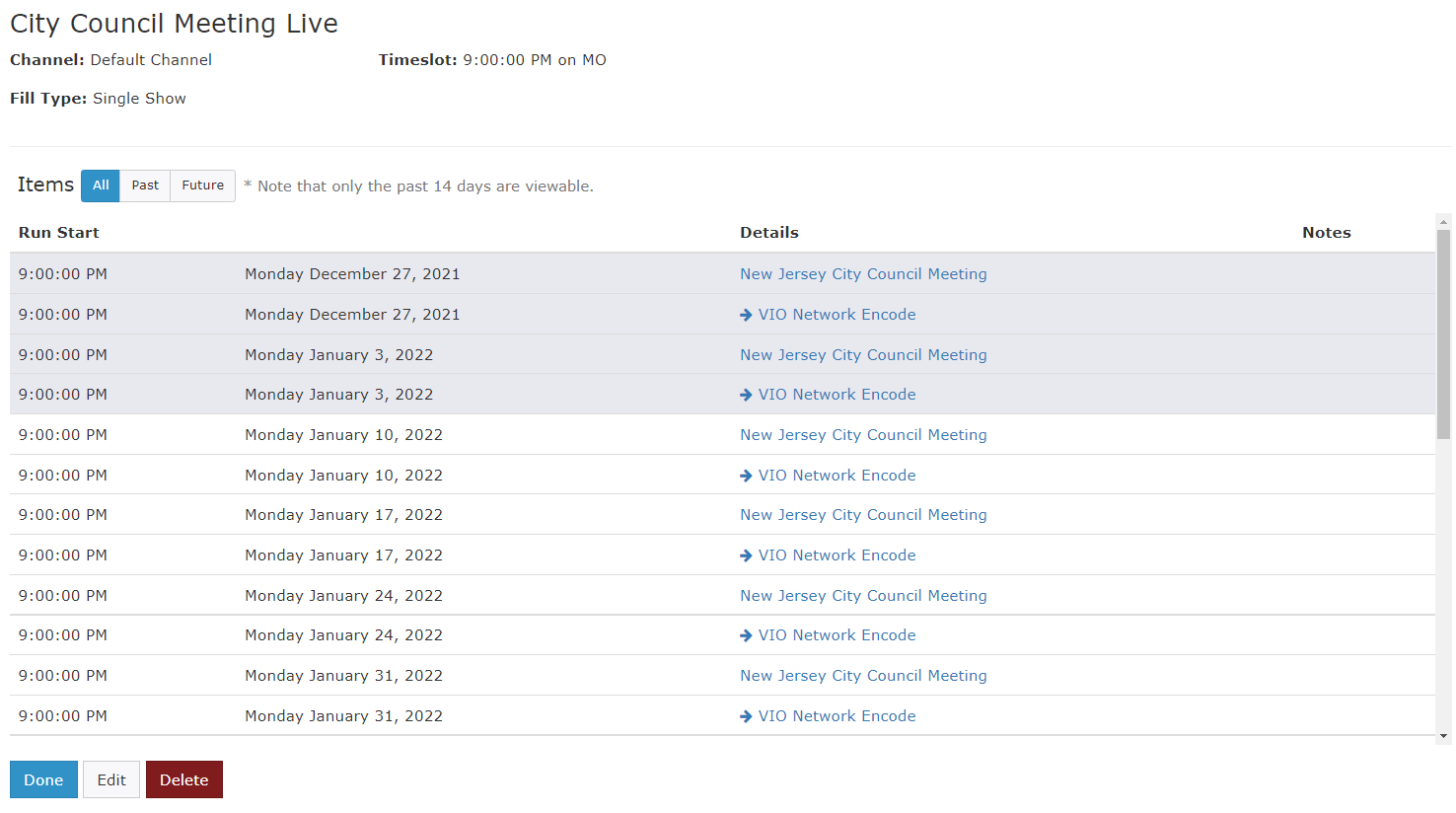Auto Schedule
The Auto Scheduler, introduced in Cablecast 6.6, allows operators to define a series of rules that will create and update schedule events automatically. For example, one could define a rule that plays the latest city council meeting every Monday, Wednesday, and Friday at 2pm. The Auto Scheduler is built using saved searches, therefore as the search results change, so will schedule events. In the previous example once an an operator creates a new City Council show, the Auto Scheduler will automatically update future episodes.

For a complete overview of how to use the Auto Scheduler please refer to the Feature Overview on the Cablecast Knowledge Base: Feature Overview: Auto Scheduler
The tab allows you to see all the rules defined on the system. Click the icon to the left of the rule's name to drag and reorder rules. From the index screen you can perform the following actions:
| Action | Description |
|---|---|
| New | Click to create a new Auto Schedule rule. This will bring up the Auto Schedule Rule Edit Form as described in Autoschedule: EditForm |
| Details | Click to see an Auto Schedule rule's report of individual runs or to delete a rule. This section is described in Autoschedule: Details |
| Edit | Click to edit a rule after it has been created. |
Auto Schedule Edit Form
An Auto Schedule rule consists primarily of that define when a schedule item or record event should start and that should be used to fill the timeslot.

For a complete overview of how to use the Auto Scheduler please refer to the Feature Overview on the Cablecast Knowledge Base: Feature Overview: Autoscheduler
Auto Schedule Details Screen
From the screen you can see a list of recent and future schedule events created by the Auto Scheduler. From this screen an Auto Schedule rule can also be deleted by clicking "Delete" at the bottom.

You can see some details about the Auto Schedule item such as the Channel, Fill Type and Timeslot. Items created by this Auto Schedule rule can be seen below, and filtered using the following options:
- All: All items, past and future
- Past: Showing only rule items having occurred in the past (relative to now)
- Future: Showing only rule items that are yet to run